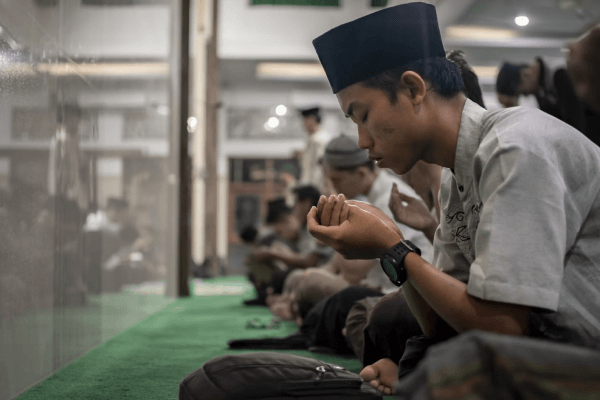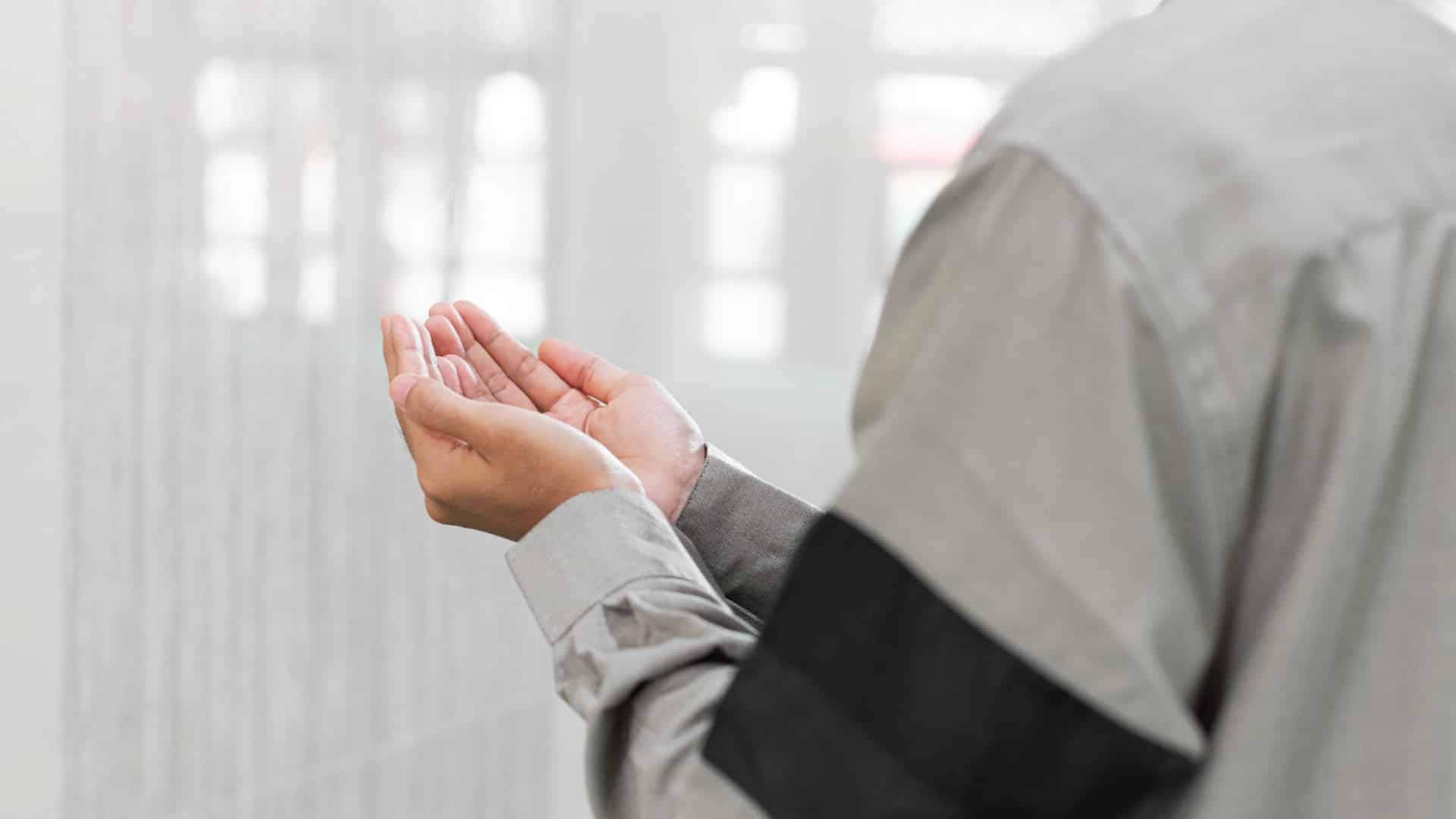10 Healthy Ramadan fasting tips – Practical Guidance and Advice
Muslims are obligated to fast for the entire month of Ramadan in order to fulfil one of the five pillars of Islam. Ramadan is the ninth month in the Islamic calendar; the period of fasting lasts from Suhoor (the pre-dawn meal) to Iftar (meal to break one’s fast) at dusk.
During the day, one should refrain from eating, drinking, smoking, chewing gum, and engaging in sexual activity. In contrast, one spends the night strengthening their relationship with Allah SWT through acts of worship, reciting the Holy Quran, praying Tahajjud, and doing dhikr of the Almighty.
Even though fasting is recognized as having numerous health benefits, it is important to practice it in a proper and safe manner to prevent harming our bodies.
Here are some healthy Ramadan fasting tips to consider for the enrichment of your mind, body, and soul.
What Breaks Your Fast?
Intentionally eating, drinking, injecting drips of vitamins and minerals, vomiting, Hijamah (cupping), masturbating, or engaging in any sort of sexual activity can break your fast.
However, accidentally drinking or eating while fasting and even taking a shower or swimming doesn’t invalidate your fast.
Tips for Fasting in Ramadan 2024
Here are some quick tips for fasting in Ramadan 2024:
- When starting the fast for the next day, you should try to eat right before the crack of dawn.
- When breaking your fast in Ramadan, start by consuming high-in-energy food in a small quantity, such as dates.
- In order to minimise the chances of feeling dehydrated by the end of the fast, you should try to drink as much decaffeinated and sugar-free water as possible.
How to Prepare for Fasting?
Preparing your body ahead of the holy month makes the transition to Ramadan a lot easier. While a lot of people start overeating before Ramadan, thinking that their body might be storing food for fasting, it is only a misconception. So, start by reducing your portion size weeks before Ramadan.
This helps your body get used to eating less and ultimately maintaining a balanced diet throughout the sacred month. Secondly, eliminate high-salt and sugar-based foods and caffeinated and carbonated drinks from your diet. Furthermore, if you are a smoker, it is recommended to put down the cigarette and try quitting one or two weeks prior to Ramadan.
This is because you won’t have sufficient time to smoke during Ramadan and deal with withdrawal symptoms like irritability, anger, restlessness, and impatience.
Best Type of Food to Eat During Suhoor

Suhoor is a meal that is eaten before sunrise. After this meal, not a single drop of water or morsel of food can enter the mouth of a fasting individual. This makes the meal eaten during Suhoor the most important meal of Ramadan, as it should be sufficient enough to keep you active throughout the day.
Therefore, for Suhoor, opt for fluid-rich and starchy foods that are high in fiber and energy as these types of meals can help ensure that you feel fuller throughout the day. Here are some high-nutrient, wholesome foods that you can eat at Suhoor:
- Eggs
- Oatmeal
- Greek yogurt or plain yogurt
- Vegetables and fruits
- Fish and chicken
- Nuts
For those who tend to skip Suhoor, know that the Messenger (PBUH) of Allah SWT said,
“Have suhoor, as indeed there is a blessing in it.” (Bukhari, Muslim)
Best Food to Eat for Iftar

The meal with which to break your fast, Iftar is the time to replenish your energy levels. Therefore, it is advised to consume wholesome foods, such as:
- Vegetables and fruits
- Meat or fish
- Low-fat dairy products
- Legumes
- Rice
In order to keep your meals as healthy as possible, limit the use of oil.
Instead, opt for alternatives like baking, grilling, shallow-frying, and steaming food items rather than consuming deep-fried items.
Tip 4 – Stay Hydrated

Because water accounts for about 60% of your body, fasting from dawn to dusk triggers your thirst much quicker compared to your hunger cravings. This is precisely why a person can survive three weeks without food but not more than three days without water.
Therefore, in order to make sure that your body stays hydrated throughout the day, have at least eight glasses of water. However, this doesn’t mean that you drink all eight glasses of water during Suhoor.
“Instead, you can simply do this by using the 2-4-2 method, meaning that you have two glasses of water at Iftar, four from Iftar till Sehri, and the remaining two glasses of water for Suhoor. This compensates your body’s daily water intake requirement without you drinking too much in one go.”
Keeping yourself hydrated isn’t only limited to drinking water. You can consume fluid-rich foods such as vegetables and fruit. While doing so, make sure that you avoid caffeinated drinks like coffee and tea and high-sugar drinks like colas, as they have a diuretic effect and can promote water loss from your body.
Tip 5 – Get Enough Sleep at Consistent Hours

From consistently trying to stay awake so that you don’t miss Suhoor to working till Iftar, your sleep cycle suffers the most during Ramadan. These lifestyle changes end up disturbing your sleep pattern, causing sleep deprivation and headaches throughout the day.
Therefore, establishing a sleep schedule and sticking to it is the secret to staying healthy and active while fasting in Ramadan.
One simple way to do this is by taking short naps during lunch break or noon, reducing your screen time to two hours before bedtime, and avoiding large, heavy meals late at night.
Tip 6 – Never Skip Suhoor
Substituting breakfast, Suhoor is the first meal that you are allowed to have before sunrise. This makes Suhoor (also known as Sehri) one of the most essential meals with which to kickstart your day in a healthy way.
Having a wholesome meal in Suhoor doesn’t only nourish your body but provides all the necessary nutrients to keep you active throughout the day.
To help you stay on schedule, we recommend delaying Suhoor time 40 to 50 minutes before sunrise. Doing so gives you sufficient time to have a fulfilling meal and drink enough water, reducing the chances of feeling thirsty or hungry while fasting. You can simply set the alarm or ask a family member to wake you up on time.
Tip 7 – Eat Moderately During Iftar

After being unable to drink and eat throughout the day, the temptation to overeat during Iftar is normal. However, this only adds to the stress and pressure on your digestive system, which now needs to work harder, leading to problems like stomach cramps, heartburn, and indigestion.
Fasting doesn’t mean that you have to double up your portion size just to make up for missed meals. Instead, it is recommended to stick to the original portion size and eat healthy meals.
Doing so helps ensure that your blood sugar level doesn’t spike and you eat as much as your body needs. It is also recommended to eat your Iftar slowly. An easy way to do this is by serving Iftar in two parts:
- A light Iftar at sunset – Dates, water, and juice.
- A full Iftar post-Maghrib prayer – Meals high in protein, carbohydrates, fiber, minerals, vitamins, etc.
Tip 8 – Try to Stay Physically Fit and Active

Even though exercising during Ramadan might sound a bit absurd, it doesn’t mean you should spend the entire day laying down, sleeping, or resting in bed. While having a nutrient-filled meal keeps you functioning, exercising helps strengthen your core and keeps you physically fit and healthy.
Though most of you might disagree with this, considering the fact that you aren’t eating anything throughout most of the day, won’t exercising only add stress to your body?
According to health specialists, if you have had an adequate and healthy meal, then exercising will provide energy instead of taking it away. This is primarily because exercising releases endorphins which tend to increase your energy levels and elevate your mood.
However, this doesn’t mean that you should just jump into it and start high-intensity training while fasting. Instead, it is advised that you should keep your Ramadan workout routine light and opt for slow exercises such as yoga stretches and brisk walking.
An hour before Iftar is the perfect time to work out in Ramadan as it keeps you busy during the most intense hour of the day, and you can also rehydrate right after. However, in case the weather is too hot, we recommend opting for indoor exercise.
Tip 9 – Portion Control and Balanced Diet Is the Key
Did you know it takes your body 20 minutes to register that you have eaten enough? While it’s normal to go overboard with your Iftar meals after an entire day of fasting, it is advised that you eat mindfully and slowly so that you get the time to listen to your body.
This prevents you from overeating and puts less stress on your digestive system, keeping your inner body functions active and minimising your chances of getting sick.
Although cravings might be intense, you should also avoid high-sugar, salty, and fried foods, as the only thing they do is make you gain weight and feel fatigued and sluggish. Instead, try incorporating foods from the major food groups, such as rice, vegetables, meat, and fruit.
Pro-Tip: Plan your meals beforehand as it helps you stay committed to a healthy diet.
Tip 10 – Trust Your Body
Considering the fact that every person has a different lifestyle, sleeping schedule, and eating likes and dislikes, there’s no standard Ramadan Rule Book that will work for all.
Therefore, it is important to trust your body, mind, and soul in order to figure out a regimen that works for you.
If you are having trouble with fasting, and even these tips don’t work for you, we recommend talking to a healthcare provider or dietitian to help you determine a routine and a meal plan for your body type.
What Is Forbidden During Ramadan?
During the holy month of Ramadan, Muslims are forbidden from drinking any liquids, eating any food, engaging in sexual activity, vomiting intentionally, and smoking from sunrise (dawn) to sunset (dusk).
Not only this but chewing gum, swearing, arguing, and taking part in any activity or thought that could invalidate your fast is strictly prohibited in Ramadan.
Is it Healthy to Fast in Ramadan?
While many people might not know this, fasting in Ramadan doesn’t only strengthen your faith but has also been proven to be excellent for your health.
According to nutritionists and health experts, fasting in Ramadan protects from chronic disease and obesity.
It stimulates the lipid profile, lowering your blood cholesterol level and minimising the chances of you suffering from any sort of disorder or stroke or even a heart attack. Fasting also improves your digestive system as the break between the two meals (from Sehri till Iftar) naturally detoxifies your body, flushing out all toxins.
Overall, fasting in Ramadan improves your life by purifying your body, mind, and soul.
Summary – Ramadan Fasting Tips
Ramadan is a blessed time of spiritual reflection, renewal, and bonding with not only the Almighty but also our family, friends, and the Muslim community at large. Although fasting for an entire month isn’t easy, that is where the reward lies!
So if you are feeling tired, thirsty, or hungry, remember that you are fasting for the sake of Allah SWT. With the aforementioned Ramadan fasting tips, you should be fully prepared for a blessed month ahead, ready to face any challenges and be able to make the most of these sacred, precious weeks.
Ramadan Mubarak to you and your loved ones!
Through His Names
New course with
Ustadh Shabbir Hassan















